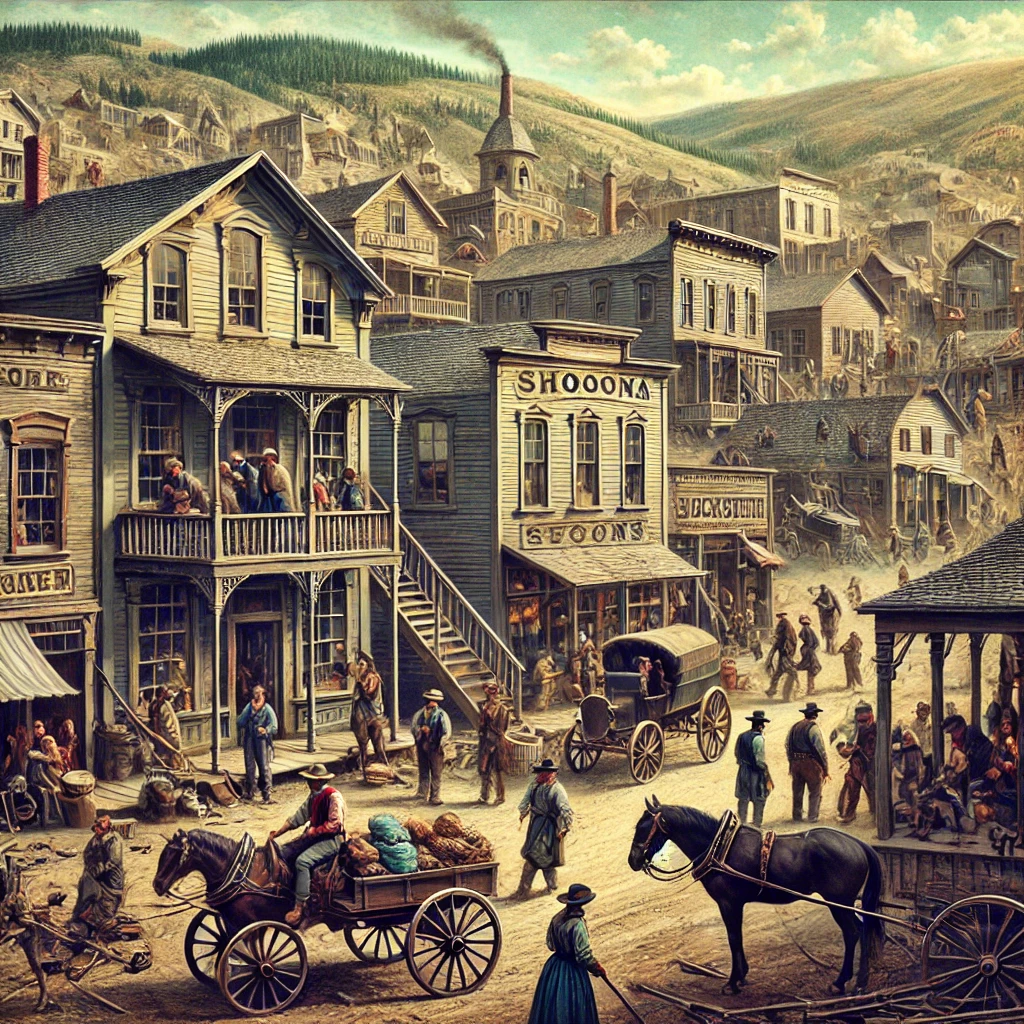On October 30, 1864, the city of Helena, Montana, was officially founded, emerging from the fervor of the gold rush that captivated many in the mid-19th century. As miners flocked to the region in search of fortune, the discovery of gold in Last Chance Gulch transformed a small settlement into a bustling town. Helena’s founding not only marked a significant moment in the development of Montana but also played a crucial role in the broader narrative of westward expansion in the United States.

The Gold Rush Era
The mid-1800s were marked by a series of gold rushes across the United States, drawing prospectors and adventurers eager to strike it rich. The discovery of gold in California in 1848 was the catalyst for a nationwide phenomenon, leading many to venture westward in search of fortune. By the early 1860s, prospectors had turned their attention to the region that would become Montana, motivated by reports of gold deposits in the area.
In 1864, a group of miners led by John White discovered gold in Last Chance Gulch, setting off a rush of prospectors eager to capitalize on the newfound wealth. The influx of miners and their families led to the rapid establishment of a settlement that would soon evolve into Helena. The town quickly developed infrastructure to support the growing population, including stores, saloons, and boarding houses, laying the groundwork for what would become a thriving city.

The Founding of Helena
As the gold rush intensified, the need for an organized community became apparent. On October 30, 1864, the city of Helena was officially founded, and its name was inspired by the hometown of one of the early settlers, Helena, Minnesota. The establishment of Helena as a city was a crucial step in solidifying its status as the economic and political center of the region.
Helena’s strategic location, situated between several gold mining districts, further enhanced its significance. It quickly became a hub for commerce and trade, with merchants and miners flocking to the city to capitalize on the growing wealth. The arrival of the railroad in the 1880s solidified Helena’s position as a critical transportation and supply center, enabling the movement of goods and people throughout the region.
The Growth and Development of Helena
In the years following its founding, Helena experienced rapid growth and development. The city attracted a diverse population of miners, entrepreneurs, and families seeking new opportunities. The wealth generated by the gold mines contributed to the construction of impressive buildings, including the Montana State Capitol, which remains a prominent landmark today.

Helena became known for its vibrant culture and community life, with theaters, schools, and churches emerging as central features of the city. The local economy diversified as businesses flourished, and the city began to establish itself as a cultural and political center in Montana. Despite the eventual decline of gold mining, Helena continued to thrive, evolving into a city known for its rich history and beautiful architecture.
Legacy and Historical Significance
The founding of Helena in 1864 represents a pivotal moment in Montana’s history and the larger narrative of westward expansion in the United States. The city’s origins in the gold rush reflect the dreams and aspirations of countless individuals who sought a better life in the West. Helena’s establishment laid the foundation for the development of the state, shaping its identity and cultural heritage.
Today, Helena is not only the capital of Montana but also a city rich in history and charm. Its historical sites and landmarks attract visitors interested in the stories of the past, including the legacy of the gold rush. The spirit of exploration and opportunity that characterized Helena’s founding continues to resonate with residents and visitors alike.
On October 30, 1864, the city of Helena, Montana, was founded amidst the excitement of the gold rush, marking a significant chapter in the region’s history. The discovery of gold transformed a modest settlement into a thriving community, establishing Helena as a key player in the economic and political landscape of Montana. As we reflect on this historic event, we celebrate Helena’s evolution from a gold mining hub to a vibrant city that embodies the spirit of the American West. The legacy of Helena’s founding continues to shape its identity today, reminding us of the enduring pursuit of opportunity and prosperity that defines the American experience.
